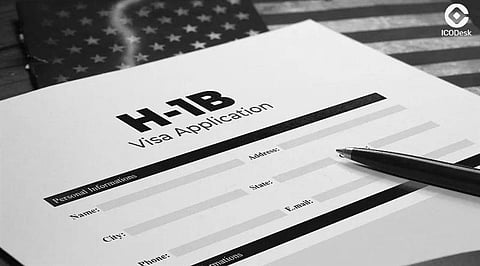

The latest news that a $100,000 supplemental entry fee for H-1B visa holders has sent shockwaves of worry among American businesses, H-1B workers, and their families. However, the late-night clarification from U.S. Citizenship and Immigration Services and U.S. Customs and Border Protection came as a relief.
These two agencies have clarified that the new fee will not be levied on current H-1B visa holders or those with approved requests. This proclamation takes effect only for petitions received after 12:01 am (Eastern Daylight Time) on September 21, 2025.
The White House also clarified that the $100,000 fee is a one-time payment, not an annual fee. This explanation has alleviated the instant panic among existing visa holders. Numerous individuals had returned to the US hastily, fearing possible complications, at substantial costs.
Immigration lawyers have stated that, although the new policy will only apply to new petitions, the poorly worded initial language has caused confusion, resulting in undue stress among foreign workers.
The new fee will put further strain on future hiring, with relief granted to current H-1B holders. The $100,000 fee is meant to dissuade companies from sponsoring new H-1B applicants, remarkably fresh graduates of US universities and professionals in research and academia.
The filing for H-1Bs tends to be seasonal, with registration opening in March, followed by the lottery process shortly thereafter. This means the full impact of such a fee would be felt during the hiring cycles.
Trade associations like Compete America, a group of large US tech and consulting companies like Amazon, Apple, and Microsoft, have also called on the US government to reconsider the new fee.
The fee, they contend, might hamper innovation and job creation by discouraging foreign talent. Legal scholars have also raised concerns, with some anticipating that the rule might be challenged in court because it may lack statutory authority.
The Indian government has come out strongly against the U.S. move to hike H-1B visa fees to $100,000. The officials see possible interference in the Indo-U.S. talent and technology exchanges and have urged prompt action to resolve the issue.
The government has assured helping affected families and keeping close cooperation with the central government to safeguard the interest of Indian professionals.
Although the recent reclarifications have eased short-term concerns for existing H-1B visa holders, the new $100,000 charge poses a major burden on future recruitment. The IT sector, lawyers, and the government of India are following the developments closely.
Possible legal recourse and diplomatic interventions are also afoot to address the long-term implications of this policy change.